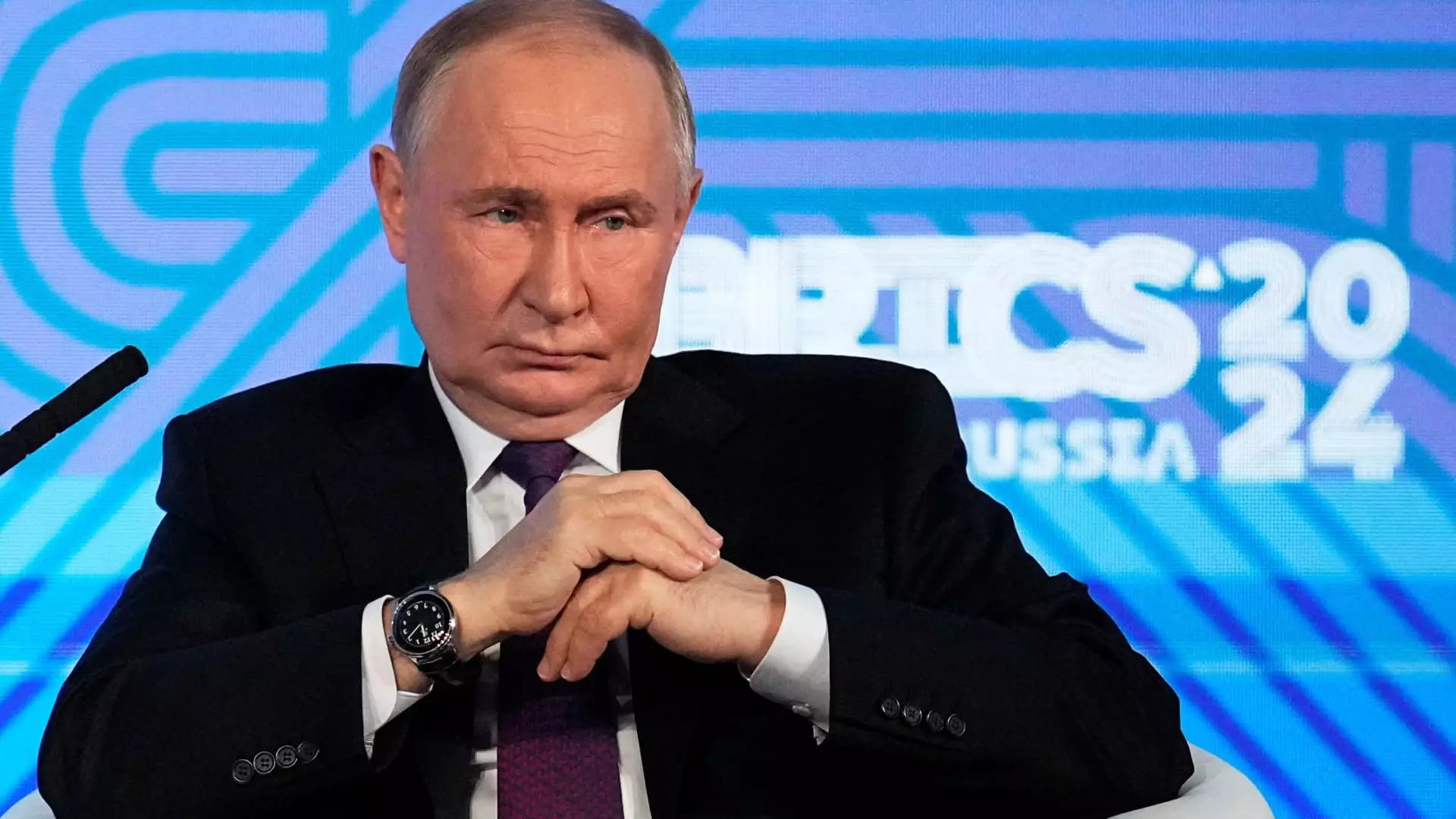In recent discussions, Russian President Vladimir Putin declared that the BRICS nations—an economic bloc initially composed of Brazil, Russia, India, China, and South Africa, now expanded to include Egypt, Ethiopia, Iran, and the UAE—are set to spearhead global economic growth in the coming years. As the developed Western countries show signs of stagnation, this group of emerging economies is positioning itself to not only stimulate economic progress but also to reshape the global financial landscape fundamentally.
Putin envisions BRICS as a formidable force countering the influence of Western governments and enhancing economic sovereignty among its members. By diminishing reliance on external influences, the bloc aims to foster a sense of independence and resilience within its member countries. The upcoming BRICS summit in Kazan, scheduled for October 22-24, will provide a platform for discussing plans that reinforce BRICS as a catalyst for sustainable growth. Such discussions are pivotal in light of the geopolitical tensions that have rendered existing alliances less tenable.
The narrative from the Kremlin hinges significantly on the idea that BRICS nations will be principal drivers of global GDP growth. With Beijing, New Delhi, and Riyadh at the forefront of economic dynamism, these nations are likely to outperform many Western counterparts in the foreseeable future. This growth is expected to be self-sustaining, reducing the bloc’s dependency on Western monetary influences and practices, particularly dominant currencies like the U.S. dollar. Putin’s assertion of economic sovereignty highlights a broader shift toward alternative financial systems and practices that align more closely with the interests of the Global South.
During the run-up to the Kazan summit, an invitation has been extended to potential new members, echoing a message of inclusivity and collaboration. Reports indicated that 30 countries have shown interest in aligning with BRICS, illuminating the bloc’s growing relevance and appeal on the world stage. The emphasis on openness not only seeks to strengthen existing ties but also to establish a more diverse coalition capable of leveraging collective resources to challenge traditional power structures.
As part of its agenda, BRICS is exploring groundbreaking financial systems to facilitate transactions among member countries, shielding them from Western sanctions. Proposed initiatives include not only a cross-border payment system, akin to SWIFT, but also plans to utilize national currencies for domestic and investment projects, further promoting economic integration. This innovative approach may herald a new era in finance, where BRICS nations can engage in trade and investment on their own terms, unshackling themselves from historical dependencies.
Putin’s remarks suggest a clear focus on harnessing technological advancements and infrastructure development as tools for enhancing economic cooperation. The New Development Bank, established by BRICS members, is seen as essential in channeling investment toward vital sectors like e-commerce, artificial intelligence, and essential transport corridors, including the North-to-South corridor that strengthens links between Russia and multiple key markets. Such initiatives are crucial as they not only boost economic viability but also facilitate integration of the economies within the Global South.
The vision articulated by President Putin for BRICS underscores a significant shift in the global economic narrative. By cultivating an environment of cooperation, innovation, and independence from Western influences, BRICS is preparing to redefine economic alliances, create alternative financial structures, and foster robust growth. As the world watches the developments emerging from the Kazan summit, the potential for BRICS to emerge as a nucleus of the new global economic order becomes increasingly apparent. The question now remains: will BRICS succeed in unifying its member states and translating this vision into a transformative reality? The future looks promising, yet the challenges ahead are monumental as they strive to establish themselves as vital players on the global stage.


Leave a Reply